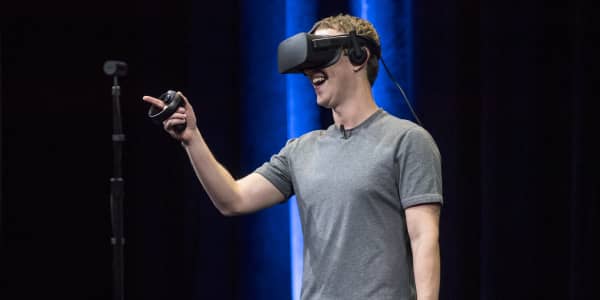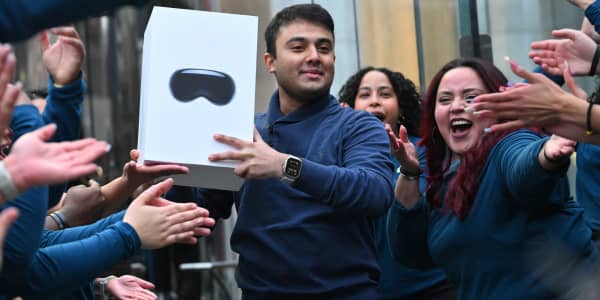After Lisa Cone-Swartz was diagnosed with Parkinson's disease in 2008, she joined a group on the crowdsourcing site PatientsLikeMe to share data about her worrisome symptoms. Seven years later, Cone-Swartz is still using the site to aid her treatment and make better drug choices.
"I wanted more control of my own medical knowledge," said Cone-Swartz, a retired executive who lives in Parkville, Missouri. "Parkinson's is very complicated, and no one has the same experience." These days, however, people can access medical information and be more demanding and informed, she explained.
Cone-Swartz adds that no one doctor can be an expert at everything, anyway. "So if I'm not my own advocate," she said, "I might not be getting the best care."
Patients like Cone-Swartz are increasingly tapping into the wisdom of crowds, whether through peers or professionals, through sites like PatientsLikeMe and CrowdMed. The crowdsourcing site methods differ, but the goal is the same: to spur the rise of the citizen scientist, who can now harness more outside data to make better health-care decisions.
Read MoreCrowdfunding a cure for Ebola
While online medical sites like WebMD educate consumers on medical conditions, they are more like health encyclopedias. But crowdsourcing sites, which also include Sickweather and Google Flu Trends, scan online data for illness trends and gather advice from crowds.
There are over 7,000 known medical conditions, and no one doctor can know them all.Jared HeymanCEO of CrowdMed
Some doctors even applaud this high-tech approach, though they agree that it's not a cure-all.
According to Dr. Richard Armstrong, a general surgeon at Helen Newberry Joy Hospital in Newberry, Michigan, crowdsourcing sites can be helpful educational tools, because so many people are frustrated with the medical system. He claims that, due to health-care bureaucracy, the average patient's visit with a doctor lasts only eight minutes and leaves little time to answer patients questions.
"So doctors have taken their eyes off the ball," Dr. Armstrong said, "and patients don't get the time they need to get questions answered."
Read MoreCrowdfunding for medical devices hits Web
Empathy has been taken out of the medical system, agreed Ari Lightman, professor of digital media and marketing at Carnegie Mellon University. "So people are connecting with others online to get that caring," he explained.
The upshot is that 24/7, always-on crowdsourcing sites are thriving. PatientsLikeMe is essentially a health data-sharing site, and its 300,000-plus members share symptoms and treatments on 2,300-plus conditions. The service is free, and the company sells data on diseases to partners such as pharmaceutical companies or medical device makers.
Ben Heywood, co-founder of PatientsLikeMe, said that his site helps patients better manage the effects of chronic illnesses like Parkinson's. "There are a lot of disease unknowns, and this is the best way to manage them," said Heywood, who helped found the site over 10 years ago after his own brother was diagnosed with ALS and the family began searching the world for new ideas. "Patients can go online to find answers and get better outcomes." Controlling cost is one motivator, he added.
CrowdMed, which was launched in 2013, ups the crowdsourcing ante even more. Patients can submit their cases to thousands of registered "medical detectives," such as doctors and other health-care professionals, who help solve them, said Jared Heyman, CEO of CrowdMed. As the detectives make successful diagnoses, they climb higher in the site's reputation system.
Patients pay between $99 and $199 per month to get entry to these detectives. A shortlist of top diagnoses is eventually generated that can be taken to a doctor. Already, 800 cases have been successfully resolved.
"We target patients with misdiagnosed medical conditions," said Heyman, adding that the most common one is Lyme disease. "There are over 7,000 known medical conditions, and no one doctor can know them all," Heyman said. He claims that crowds of people are needed to solve these difficult problems.
Not a cure-all
No one sees crowdfunded medical solutions as a substitute for doctors' advice, though.
And there are other concerns, too. Dr. Armstrong worries that crowdfunded medical information may not be accurate or mainstream enough. "Wrong information can get out there and be used by people who aren't deeply trained," he said. So Dr. Armstrong is on the medical advisory board of SERMO, a social network for more than 300,000 doctors to exchange medical information.
Lightman also worries about misinformation. "What happens if you get a wrong diagnosis?" he said. "Would you trust the crowd or go right to a specialist? Thinking that a website can cure everything is a fallacy. But it will get you further down the medical path."
Lightman also worries that patients may be forfeiting their privacy rights when using crowdfunding sites. So he suggests noting a site's privacy policy. Protections should include information on how the patient data is being used and stored, he said. And a user's personal information, such as email or address, shouldn't be able to be tied back to their identity.
Ultimately, Lightman believes crowdsourcing medical solutions is good for consumers. "Putting people and the medical community together will be a boon for research," he said. "And we're also at the very beginning of citizen science."




